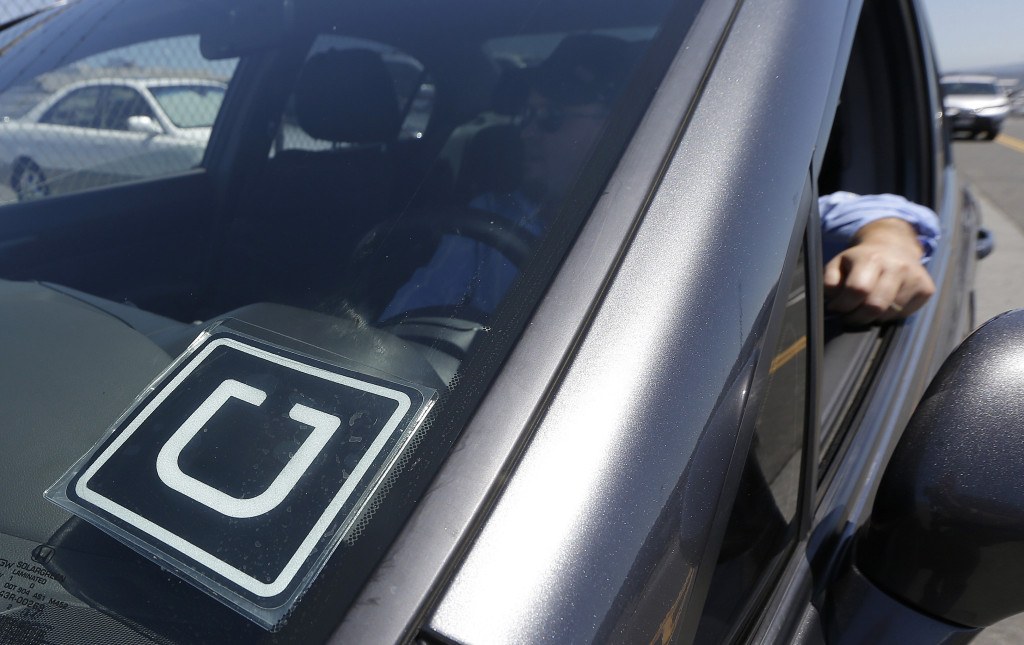Uber Technologies Inc. and Postmates Inc. are unlikely to put a quick stop to a landmark California law they call a monstrous threat to their business models.
A judge signaled Friday that she’s inclined to reject a request to temporarily shield the companies from Assembly Bill 5, which is aimed at converting gig-economy workers from independent contractors to employees with benefits.
Uber and Postmates sought a preliminary injunction, an order insulating their drivers from A.B. 5’s protections, while they challenge the measure as unfair and unconstitutional. Reclassifying drivers as employees will add 20% to 40% in labor costs, the companies said in a court filing that described A.B. 5 as an “irrational Frankenstein-like statute.”
U.S. District Judge Dolly M. Gee said during a hearing in Los Angeles that it was “a steep hill to climb” for Uber and Postmates to argue that the statute irrationally targets the app-based companies on the grounds that many workers in other industries were exempt from it.
“I can’t second guess the legislature unless you show me an example of an exemption that absolutely doesn’t make sense,” Gee said.
California Attorney General Xavier Becerra argued the attempt to squelch the law will fail because the state legislature has a prerogative to stop the gig economy’s exploitation of workers.
An Uber spokesman and a lawyer for California declined to comment after the hearing.
Legal experts say the lawsuit faces long odds due to the deference courts give legislatures to create laws to address policy problems.
“My guess is that the companies were hoping for an outlier judge — maybe someone very skeptical of regulations in general — and that such a judge might be willing to make the leap the companies were asking for at the preliminary injunction stage,” said Charlotte Garden, an Associate Professor at Seattle University School of Law.
Uber and Postmates didn’t ask Gee to block enforcement of the law against other companies. But as multiple court battles play out, gig-economy firms are collaborating on other fronts to rein in the law. Uber, Lyft, Postmates, Instacart and DoorDash have pledged $110 million for a ballot measure to change A.B. 5.
Signed by California Governor Gavin Newsom in September, A.B. 5 says workers can generally only be considered contractors if they perform duties outside the usual course of a company’s business. Uber filed its suit Dec. 30, two days before A.B. 5 took effect.
The case is Olson v. State of California, 2:19-cv-10956, U.S. District Court, Central District of California (Los Angeles).
Was this article valuable?
Here are more articles you may enjoy.


 One out of 10 Cars Sold in Europe Is Now Made by a Chinese Brand
One out of 10 Cars Sold in Europe Is Now Made by a Chinese Brand  Charges Dropped Against ‘Poster Boy’ Contractor Accused of Insurance Fraud
Charges Dropped Against ‘Poster Boy’ Contractor Accused of Insurance Fraud  LA County Told to Pause $4B in Abuse Payouts as DA Probes Fraud Claims
LA County Told to Pause $4B in Abuse Payouts as DA Probes Fraud Claims  Uber Jury Awards $8.5 Million Damages in Sexual Assault Case
Uber Jury Awards $8.5 Million Damages in Sexual Assault Case 